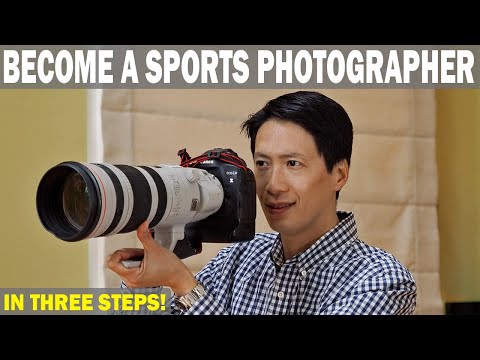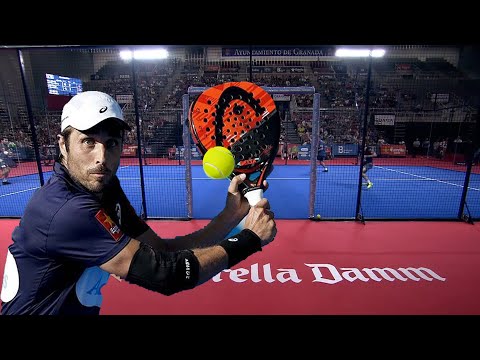How Do You Become a Sports Photographer?
Contents
- Introduction
- What Does a Sports Photographer Do?
- What Skills Do You Need to Become a Sports Photographer?
- What Education is Needed to Become a Sports Photographer?
- How to Get Started in Sports Photography
- What are the Job Prospects for Sports Photographers?
- What is the Salary of a Sports Photographer?
- Conclusion
A sports photographer captures images of athletes in competition. If you’re interested in becoming a sports photographer, here’s what you need to know.
Checkout this video:
Introduction
Sports photography is a genre of photography that covers sporting events. It can be anything from a racing car at the Indianapolis 500 to a figure skater at the Winter Olympics. A sports photographer needs to be able to capture the action, as well as the emotion, of the event in order to create a compelling image.
There are many different ways to become a sports photographer. Some people start out as amateur photographers and then work their way up to professional status. Others may begin their careers as photojournalists or freelance photographers and then specialize in sports photography.
Whatever your path to becoming a sports photographer, there are some essential skills that you will need to learn. In this article, we will discuss what it takes to be a successful sports photographer, including the necessary equipment, training, and experience.
What Does a Sports Photographer Do?
Sports photography is a genre of photography that involves taking pictures of sports events and athletes in action. Sports photographers need to have very good reflexes and be able to anticipate the action to be able to take good pictures. They also need to be aware of the safety of both the athletes and the spectators.
Most sports photographers work for newspapers or magazines, but some also work freelance. In order to become a sports photographer, it is important to have a strong portfolio. It is also helpful to have experience working with computers, as many editors now use digital editing software.
What Skills Do You Need to Become a Sports Photographer?
First and foremost, you need to have a passion for sports. A genuine love of the game will come through in your photos and make them that much more appealing to editors and clients. In addition, you should have a strong technical understanding of photography, including an excellent working knowledge of composition, lighting, and exposure. As a sports photographer, you’ll also need to be able to think on your feet and make split-second decisions; after all, you never know when the perfect photo opportunity will present itself. Last but not least, it’s also important to be well-organized and detail-oriented, as sports photography can often be a fast-paced and chaotic environment.
What Education is Needed to Become a Sports Photographer?
A high school diploma is the minimum educational requirement for most sports photography positions. However, many jobs also require postsecondary education, and some employers prefer applicants who have a bachelor’s degree.
Relevant coursework for aspiring sports photographers includes classes in photography, digital imaging, journalism, and business. Many schools offer programs in sports journalism, which can be beneficial for students who want to pursue a career in this field. In addition to completing formal education, many photographers also complete internships or apprenticeships with experienced professionals to gain real-world experience.
How to Get Started in Sports Photography
Sports photography is one of the most popular genres in photography, and it can be both extremely rewarding and great fun. If you’re thinking of getting started in this exciting field, here are a few things you need to know.
The first step is to get yourself a good camera. You don’t need the very latest and greatest model, but it should be something that gives you the ability to shoot in manual mode so that you can have full control over your settings. A DSLR or mirrorless camera with interchangeable lenses is ideal, but even a good quality point-and-shoot will do the job if that’s all you have.
The second step is to practice, practice, practice. Shoot as much as you can, and experiment with different techniques. Visit the stadiums or arenas where your favorite teams play and watch how the professional photographers work. See what kind of gear they use and how they position themselves to get the best possible shots. And most importantly, don’t be afraid to make mistakes – everyone does at first.
Once you’ve got a good handle on the basics, start reaching out to local sports teams and see if they need a photographer for their games or events. You may not get paid at first, but it will be a great way to build your portfolio and get some valuable experience under your belt.
Persistence and perseverance are key in any endeavor, but especially in sports photography where there is so much competition. If you’re willing to put in the hard work, though, there’s no reason why you can’t achieve your dreams of becoming a successful sports photographer.
What are the Job Prospects for Sports Photographers?
Job prospects for sports photographers will vary depending on the industry in which they choose to work. Some photographers may find employment with professional sports teams, while others may work for universities or colleges, news organizations, or other businesses that have a need for their services. In general, the job outlook for all photographers is expected to be about average when compared to other occupations through the year 2024, according to the U.S. Bureau of Labor Statistics.
What is the Salary of a Sports Photographer?
Sports photographers typically earn an annual salary of $25,000 to $40,000. However, experienced photographers with a strong portfolio can earn up to $75,000 per year.
Conclusion
In conclusion, a career in sports photography requires a passion for both sports and photography, as well as a strong desire to learn and improve one’s craft. There is no one “right” way to become a sports photographer, but the most successful photographers typically have a solid foundation in photography, whether through formal education or self-study. In addition, many sports photographers have worked their way up from other related fields such as photojournalism or general news photography. Above all, a good sports photographer must be dedicated to his or her craft and be willing to put in the long hours and hard work required to be successful.





